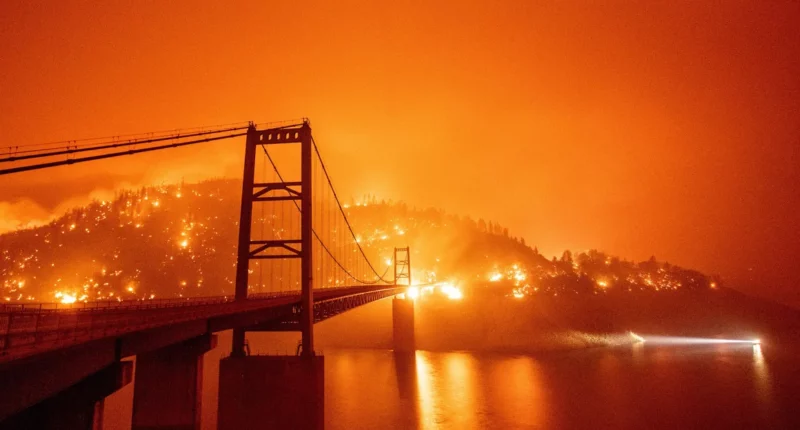The period spanning from 2011 to 2020 marks the warmest decade on record for the Earth’s landmasses and oceans, signaling an alarming surge in the pace of climate change, as per the latest findings by the World Meteorological Organization.
Released during the COP28 summit held in Dubai, the report highlighted an unprecedented increase in atmospheric pollutants responsible for heating the planet. This surge in pollution levels significantly contributed to soaring temperatures across land and sea, intensifying the rapid loss of glaciers and the alarming rise in sea levels during this timeframe.
The ongoing year is anticipated to clinch the title of the hottest on record, with six consecutive months registering record-breaking global temperatures.
Climate scientists attribute this exceptional warmth to the combined impact of El Niño and human-induced climate change, fueled primarily by the emission of fossil fuels known for their warming effect on the planet. A distinct analysis disclosed on Monday by the Global Carbon Project forecasts a new pinnacle in carbon emissions from fossil fuels in 2023, surpassing 2022 levels by 1.1%.
These latest findings from WMO echo a three-decade pattern. Secretary-General Petteri Taalas remarked, “Each successive decade since the 1990s has witnessed higher temperatures than its predecessor, with no foreseeable indications of this pattern reversing. Urgent and decisive action to curtail greenhouse gas emissions stands as an imperative to prevent uncontrolled escalation of climate change.”
While the concentration of all heat-trapping gases registered a rise in the past decade, the WMO underscored the worrisome escalation of methane levels.
“The concerning observation here is the nearly twofold surge in methane growth throughout this decade,” stated Elena Manaenkova, WMO’s Deputy Secretary-General, during a Tuesday press briefing.
The Global Carbon Project’s analysis illustrated a rise in climate emissions from various fossil fuel sources globally. Notably, coal and oil emissions surged notably in India and China, whereas the US and the EU exhibited marked declines in coal usage. Natural gas emissions witnessed an increase in the US, China, and India, yet a decrease was observed in the EU.


At the current emission trajectory, experts estimate a 50% probability of global temperatures frequently surpassing the 1.5 degrees Celsius mark within approximately seven years. This temperature, the focal point of the Paris climate accord and a critical threshold, poses challenges for human adaptation and ecosystem resilience. Notably, this year experienced a brief breach of this threshold due to the confluence of El Niño and the ongoing climate crisis
The WMO report cautioned that climate disruptions imperil global food security and trigger displacements worldwide. It highlighted a significant transformation occurring in polar regions and high-altitude terrains, noting the alarming rate at which glaciers and ice sheets are vanishing.
Amidst the concerning revelations, there is a glimmer of hope as the report indicates progress in the recovery of the ozone layer, attributed to concerted international efforts in phasing out ozone-depleting substances.
The release of the WMO report coincides with the ongoing UN-supported COP28 climate summit, focusing on energy and industrial sectors. The pivotal role of fossil fuels, a primary driver of the climate crisis, remains a contentious issue at COP28.
“The impacts of climate change are conspicuous, yet efforts to curtail carbon emissions from fossil fuels are regrettably sluggish,” remarked Pierre Friedlingstein, a professor at the University of Exeter’s Global Systems Institute. “It appears increasingly inevitable that we will surpass the 1.5°C target outlined in the Paris Agreement. Leaders convening at COP28 must swiftly agree on substantial reductions in fossil fuel emissions to preserve hopes of achieving the 2°C goal.”





